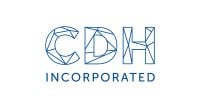

Chief legal counsel | Ignition Group



Craig G. Lawrence
Chief legal counsel | Ignition Group
Team size: Eight
What are the most significant cases and transactions that your legal team has recently been involved in?
Ignition Group (headquartered in South Africa) consists of businesses that are involved in customer acquisition and engagement, mobile telecommunications, financial services and retail. The Group operates globally with key focus areas in the United States, the United Kingdom, and South Africa. The Group’s legal team consisting of a dedicated Contracts and Disputes team and Compliance and Risk Management team manages and advises on the legal and compliance infrastructure across the Group.
Over the past year, we have been primarily focused on expansion. From a Legal perspective, this has included a complete restructure of the contractual infrastructure with a key focus on cross border contractual and regulatory compliance. Collaborating with external counsel in the UK and US has enabled us to build a scalable and robust contract repository which has ensured contractual consistency and reduced our time-to-sign considerably. From a compliance perspective, we restructured the Group compliance roll-up committee structure to ensure that the sub-committees manage risk within their verticals with specific focus to their operating jurisdiction. These sub-committees then report such risks to the overarching Risk and Governance Committee which is then empowered to manage risk throughout the organisation in a nuanced manner in consideration of the Group imperative. This systematic approach to compliance has proven invaluable in managing risk across the business in a systematic and sustainable way.
With the Groups focus being on growth, during 2023, we spent a considerable amount of time safeguarding the Group’s IP rights to provide brand protection globally. We also provided strategic legal counsel to successfully close two M & A transactions.
Looking forward, what technological advancements do you feel will impact the role of in-house legal teams in the future the most? Which have you found most useful in your legal team?
I believe that the legal landscape is poised for significant transformation through technological advancements. The integration of artificial intelligence in contract review and drafting processes can significantly streamline legal operations, allowing legal teams to focus on more complex and strategic matters. I am of the view that we need to be careful about the premature adoption of this technology in the legal space and am mindful that these tools should be used in a supplementary manner but not as a replacement for key legal resources. I have received several emails from AI contract management tool businesses, and we are testing some of those out.
Furthermore, considering the dynamic nature of the legal and regulatory landscape, regulatory technology tools emerge as valuable solutions to assist legal and compliance teams in efficiently navigating and ensuring compliance with the various laws and regulations. This is especially useful in businesses like the Ignition Group which are aggressively expanding cross border.
Currently, we utilise DocuSign, SharePoint, and OneDrive – all of which afford us a clear process for document signing controls, repository management, and review oversight.
What are some of the main trends impacting your industry in South Africa?
There are several trends shaping the legal landscape in South Africa starting with the increasing focus on data privacy and protection, along with the risk of non-compliance. Second, AI technology and the threat it imposes on the legal profession. As opposed to traditional in-house counsel there is a shifting focus and greater reliance on AI tools to build contracts, policies, and provide legal advice. We are also experiencing an increasing importance and international rise of ESG within the governance infrastructure.
Most significantly, there is the negative impact and business risk which has been brought about by advancements in technology. The continuous evolution of technology brings about increasing sophistication in cyber-attacks and security breaches. As technology advances, cybersecurity protocols must also elevate to effectively counter these emerging threats. Due to the rapid developments within the cybersecurity and data privacy world, we are spending a considerable amount of time and money in ensuring the efficiency and effectiveness of our internal measures to protect against cybersecurity breaches. Insurance costs to safeguard against these risks are also increasing significantly.
How do you suggest in-house lawyers build strong relationships with business partners?
Clear and effective communication is fundamental. Setting timelines for deliverables, posing commercial questions, and understanding risk appetite are crucial in providing solutions-driven legal counsel. Managing expectations and ensuring commitments are met are essential to establish trust.
Furthermore, maintaining regular and consistent engagement with key stakeholders ensures that legal counsel can be more proactively focused. This aligns with broader organisational goals such as building legal infrastructure through the development of contractual templates and compliance programs. This approach ensures that reactive mandates are supported by established processes and procedures rather than being dealt with on an ad hoc basis.
The legal department should not be perceived as a roadblock to business but rather as an ally in ensuring risk management through commercial transactions. Demonstrating sound legal intervention builds trust and reinforces the value and integrity of any in-house counsel.
Chief legal counsel | Ignition Group of Companies